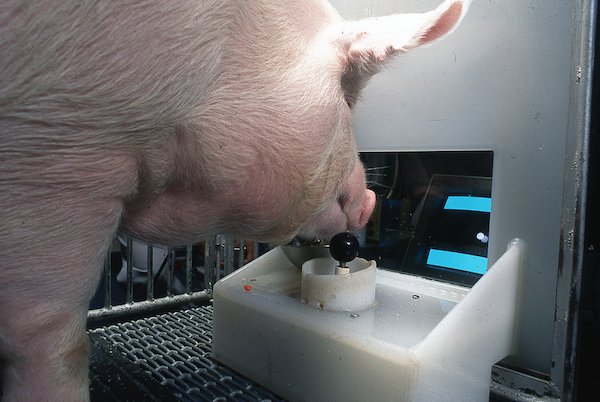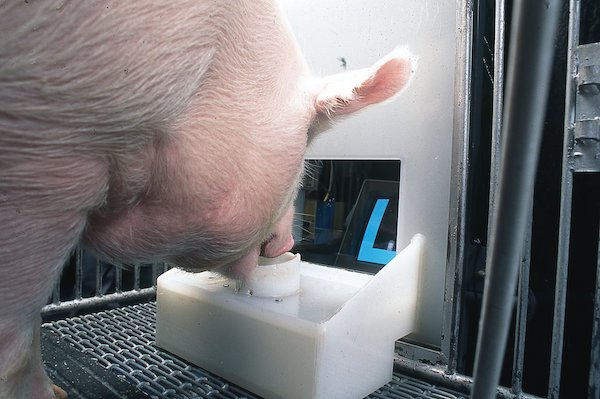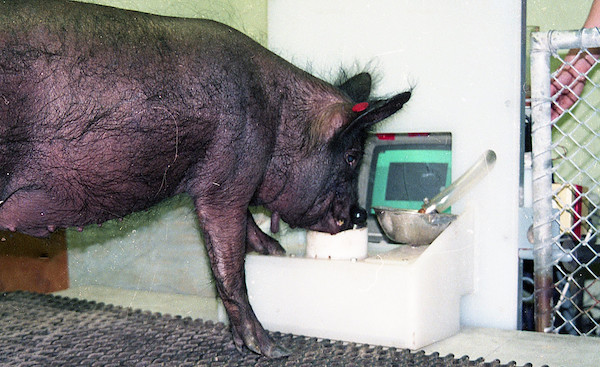Don't miss the latest stories
Pigs Have Proven To Be So Smart, They Can Play Video Games With Their Snouts
By Mikelle Leow, 17 Feb 2021
Subscribe to newsletter
Like us on Facebook

Image by Eston Martz at Pennsylvania State University via Frontiers in Psychology (CC BY 4.0)
Gone are the times of this little piggy going to market and this little piggy staying home. These days, they’re playing video games, and considering their physical limitations, they’re pretty good at them.
Four snouted players, Hamlet, Omelette, Ebony, and Ivory, were recently trained by researchers to control an arcade-style joystick with their snouts such that it maneuvered an on-screen cursor into walls. Surprisingly, they proved to be able to comprehend the link between the controller and the game.
Each time they won a game level, the pigs were rewarded with a food pellet. However, food wasn’t the only reason they were playing the game—they appeared to also enjoy it for the resulting social gratification, as when the food dispenser broke, the gamers continued clearing levels with the encouragement of the researchers.
In their paper, the researchers described how “remarkable” it was that the pigs could understand how the game and joystick worked. Not only did they have to learn snout and screen coordination, but they also had to do so in spite of being far-sighted creatures with no hands nor opposable thumbs.
Just like human gamers, the pigs began to struggle as the levels got more challenging, and some were more astute to gaming than others.
Between the two Yorkshire pigs, Hamlet was a better gamer than Omelette. As for the two Panepinto micro pigs, Ivory and Ebony, Ivory was far more proficient at hitting one-wall targets.
Despite their varied skill levels, the pigs’ proficiencies were consistent enough for the researchers to establish that the results weren’t random.
Above all, their response to the kind words of the researchers—sans treats—showed that, “As with any sentient beings, how we interact with pigs and what we do to them impacts and matters to them,” shared lead author Dr Candace Croney.

Image by Eston Martz at Pennsylvania State University via Frontiers in Psychology (CC BY 4.0)

Image by Candace Croney at Pennsylvania State University via Frontiers in Psychology (CC BY 4.0)
[via BBC News, images via Frontiers in Psychology (CC BY 4.0)]
Receive interesting stories like this one in your inbox
Also check out these recent news
Artificial Intelligence





